Aayushmati Geeta Matric Pass Review: A Story of Determination Breaking Societal Norms in Rural India
Updated on 17th october 2024
In the realm of socially conscious cinema, Aayushmati Geeta Matric Pass stands out as a heartfelt narrative that highlights essential themes such as women’s education, gender equality, and the struggle against the rigid societal norms that still dominate rural India. Directed by Prradip Khairwar in his directorial debut, this film effectively mixes humour, drama, and romance, while delivering a powerful message about the transformative power of education.
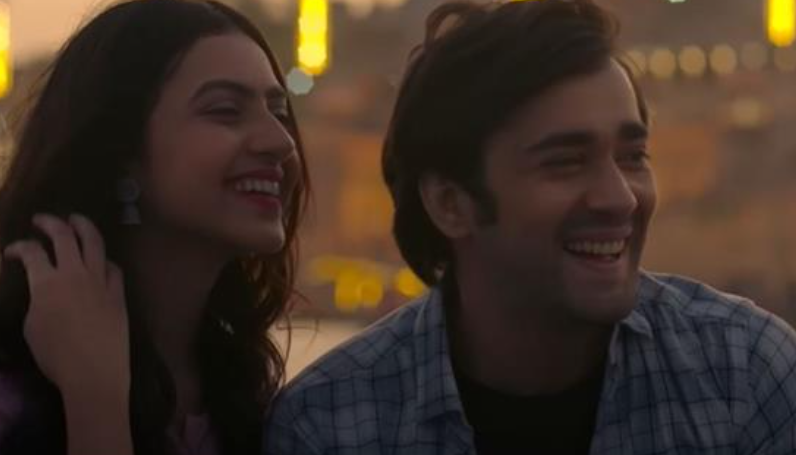
Plot and Premise: A Woman’s Journey Against the Odds
Set in a small village in Uttar Pradesh, the movie opens up a window into the lives of women who are often caught in the crosshairs of tradition and modernity. In rural India, a young woman’s path in life is usually predetermined marriage is given priority over education. In Aayushmati Geeta Matric Pass, we meet Geeta Tripathi, portrayed by Kashika Kapoor, a determined young woman who struggles repeatedly to pass her 10th-grade matriculation exams.
The movie introduces Geeta’s father, Vidyadhar Tripathi (played by Atul Shrivastava), who insists that his daughter must complete her education before thinking about marriage. His strong belief in the importance of education for his daughter forms the backbone of the plot and ignites a battle against deeply entrenched societal norms. His stance causes friction within the community, especially when he rejects a promising marriage proposal for Geeta until she passes her exams.
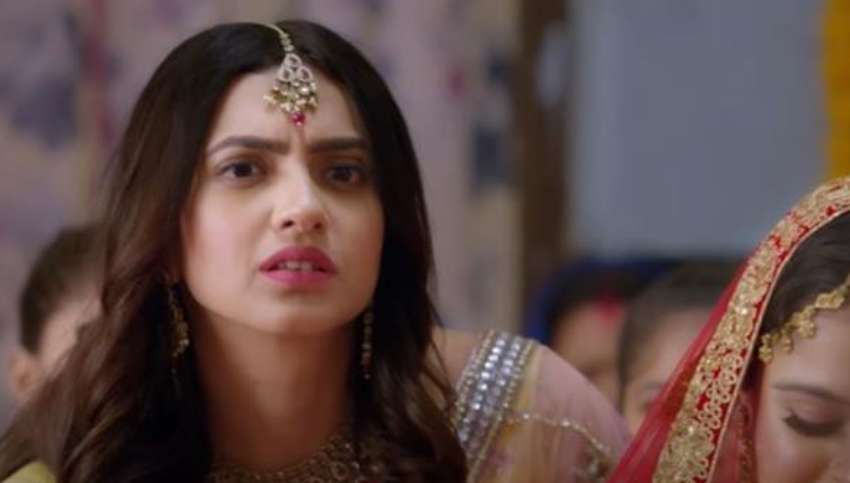
Meanwhile, the character of Kundan, a simple boy played by Anuj Saini, adds a layer of romance and social complexity. Kundan, having only studied up to the 8th grade, falls in love with Geeta at a marriage ceremony. However, the tension arises when Kundan’s mother, Malti (played by Alka Amin), sees Geeta’s father’s insistence on her education as unreasonable, believing that marriage is far more important than passing exams. As a result, the film follows Geeta’s struggle to meet her educational goals while navigating the support and challenges she receives from Kundan and her family.
Writing and Direction: A Socially Relevant Narrative
Prradip Khairwar and Navnitesh Singh, the writers of Aayushmati Geeta Matric Pass, delve into a subject that is deeply relevant in India today women’s education and the societal obstacles that stand in its way. The script paints a picture of a patriarchal society where women’s worth is often measured by their domestic abilities rather than their intellectual or academic achievements. This movie, however, dares to challenge these outdated norms and presents a refreshing take on how education can be a game-changer for women.
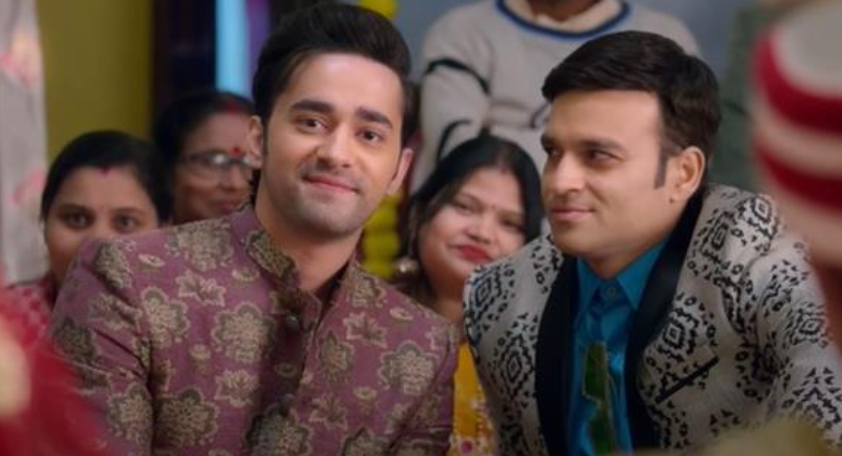
While the plot is familiar in its exploration of women’s struggles for basic rights, the film still manages to feel fresh, largely due to its sincere portrayal of rural life. The contrast between the traditional views of the older generation and the progressive aspirations of younger individuals, such as Geeta and Kundan, is evident throughout the film. The script subtly critiques patriarchal values while promoting a message of empowerment.
Performances: Strong Leads and Supporting Cast Shine
The performances in Aayushmati Geeta Matric Pass are commendable. Kashika Kapoor, in her debut as Geeta, delivers a nuanced and believable portrayal of a village girl determined to pursue her education despite the hurdles in her path. She captures both the vulnerability and strength of Geeta’s character, making her someone the audience can root for throughout the film. Kapoor’s natural charm brings Geeta to life, and her portrayal gives the movie much of its emotional weight.
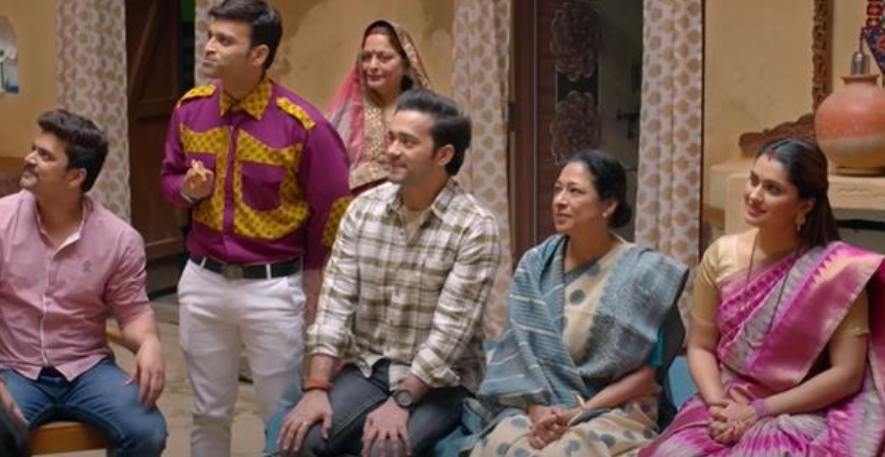
Anuj Saini, who plays Kundan, complements Kapoor’s performance with sincerity and ease. His character represents the evolving mindset of a new generation of men who are willing to support and respect the ambitions of the women they love. Kundan’s support of Geeta’s educational journey, despite his own lack of formal education, makes their love story a sweet and refreshing counterpoint to the film’s more serious themes.
Atul Shrivastava, as Geeta’s father, gives one of the most impactful performances of the film. His role as a progressive father who values education over societal expectations is both heartwarming and convincing. The chemistry between him and Kashika Kapoor adds depth to their father-daughter relationship, which forms the emotional core of the story. Alka Amin, as Kundan’s mother Malti, brings a balance of comedic relief and seriousness, reflecting the complex family dynamics that often arise when tradition is challenged.
Screenplay and Pacing: A Balancing Act of Drama, Humor, and Romance
The screenplay of Aayushmati Geeta Matric Pass follows a relatively predictable arc but remains engaging. The film’s humour, provided by Pranay Dixit’s character Bunti, helps to lighten the tone and prevent the film from becoming too heavy-handed with its social messaging. The pacing is generally steady, though there are moments when the film feels slightly stretched, especially in the middle sections. The love story between Geeta and Kundan, though conventional, is heartfelt and adds emotional depth to the narrative.
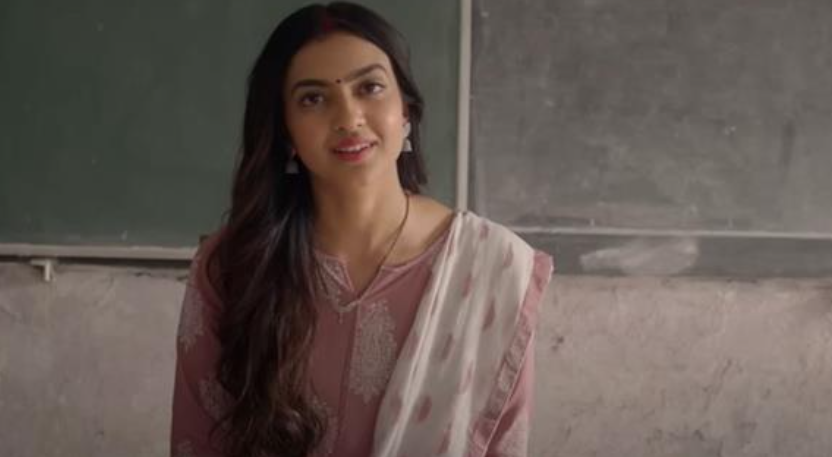
That said, the film does falter in its attempt to juggle multiple themes at once. There are moments when the plot feels slightly bogged down by subplots particularly the subplot surrounding an educational scam which could have been developed more fully or trimmed to maintain tighter pacing.
Setting and Music: Capturing Rural India
The rural setting of Uttar Pradesh serves as the perfect backdrop for the film. The scenic shots of the village and nearby Banaras add authenticity to the story, grounding it in a very real context. The visuals complement the film’s tone, helping to immerse the viewer in Geeta’s world. The use of the village landscape reinforces the idea that these are real people facing real societal challenges, which adds to the emotional impact of the story.
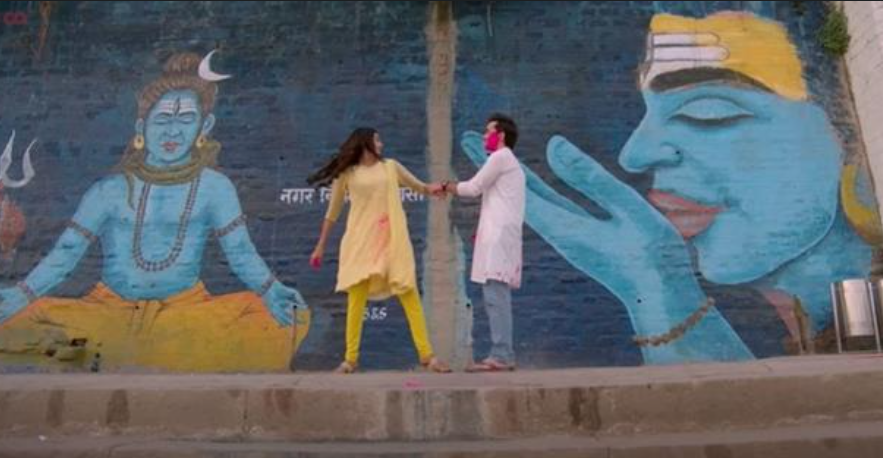
The music by Sanjeev Anand fits well with the film’s mood, though it doesn’t necessarily stand out as a key element. The standout track “Rangreza,” sung by Rekha Bhardwaj, adds emotional depth, particularly in scenes of personal struggle and introspection. While the music supports the narrative, it’s the performances and story that take center stage.
Themes: Education, Empowerment, and Gender Equality
At its core, Aayushmati Geeta Matric Pass is about the transformative power of education, especially for women in rural areas where such opportunities are often limited. The film doesn’t shy away from showing the ingrained patriarchal attitudes that value women only in their roles as wives and mothers. Yet, through Geeta’s journey, the film demonstrates how education can empower women to challenge these norms, forge their own paths, and take control of their futures.
Another important theme is the role of men in supporting women’s empowerment. Kundan’s character is a refreshing departure from the typical male ego often portrayed in films. His willingness to support Geeta’s ambitions, despite his own lack of education, sends a strong message about how men can contribute positively to the fight for gender equality.
The Misses: Where the Film Could Improve
While the film is successful in conveying its message, it does suffer from a few shortcomings. The screenplay, while engaging, could have been tighter, particularly in the middle section, where certain scenes feel repetitive. The subplot involving the educational scam, though timely, feels somewhat underdeveloped and detracts from the film’s central theme of women’s education. Additionally, the film’s attempt to tackle multiple social issues gender inequality, education, and corruption sometimes leaves certain elements feeling overshadowed.
The Verdict: A Heartfelt Film with a Powerful Message
Overall, Aayushmati Geeta Matric Pass is a heartfelt and socially relevant film that shines a light on the importance of women’s education and the slow dismantling of patriarchal norms. With sincere performances, particularly by Kashika Kapoor and Atul Shrivastava, the film leaves a lasting impression despite its occasional shortcomings. It’s not a perfect film, but its core message is strong, and its portrayal of a young woman’s determination to pursue her education in the face of societal resistance is both inspiring and relevant.
FAQ Section
1. What is Aayushmati Geeta Matric Pass about? Aayushmati Geeta Matric Pass is about a young woman named Geeta who struggles to pass her 10th-grade exams while battling societal norms that prioritize marriage over education. The film highlight’s themes of women’s education, gender equality, and the importance of empowerment through learning.
2. Who are the main actors in the film? The film stars Kashika Kapoor as Geeta, Anuj Saini as Kundan, Atul Shrivastava as Geeta’s father, and Alka Amin as Kundan’s mother.
3. What is the message of the film? The film emphasizes the importance of education for women and challenges the patriarchal mindset that often restricts women to domestic roles. It also portrays how education can be a transformative tool in empowering women to break free from societal expectations.
4. Is Aayushmati Geeta Matric Pass a romantic film? While the film features a romantic subplot between Geeta and Kundan, the focus is primarily on Geeta’s educational journey and her fight against societal norms. The romance adds emotional depth but doesn’t overshadow the film’s core message.
5. How does the film handle the theme of gender equality? The film portrays gender equality through Geeta’s struggle for education and her father’s progressive support. It also shows how Kundan, Geeta’s love interest, breaks away from traditional male ego to support her ambitions, highlighting the role men can play in promoting gender equality.





